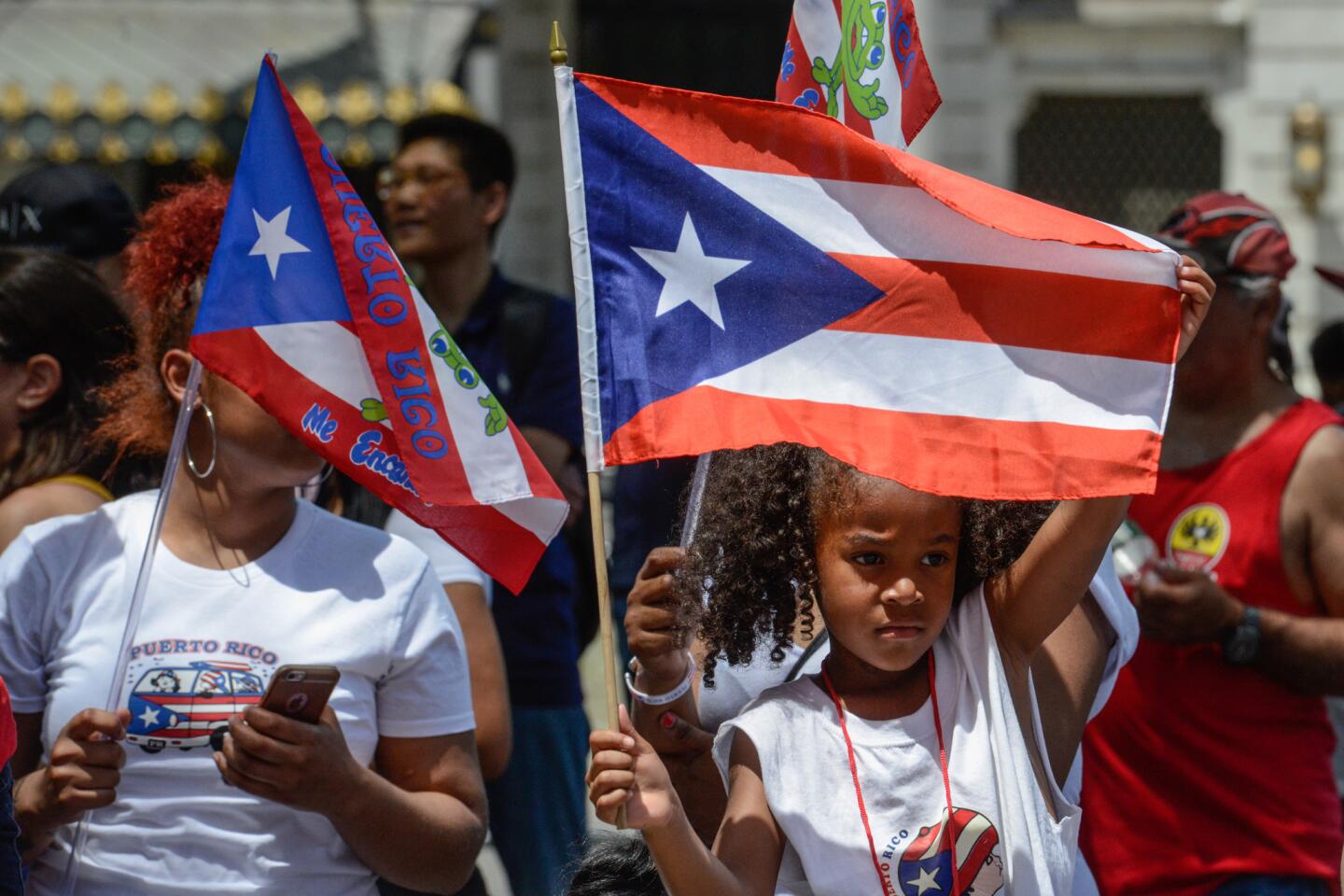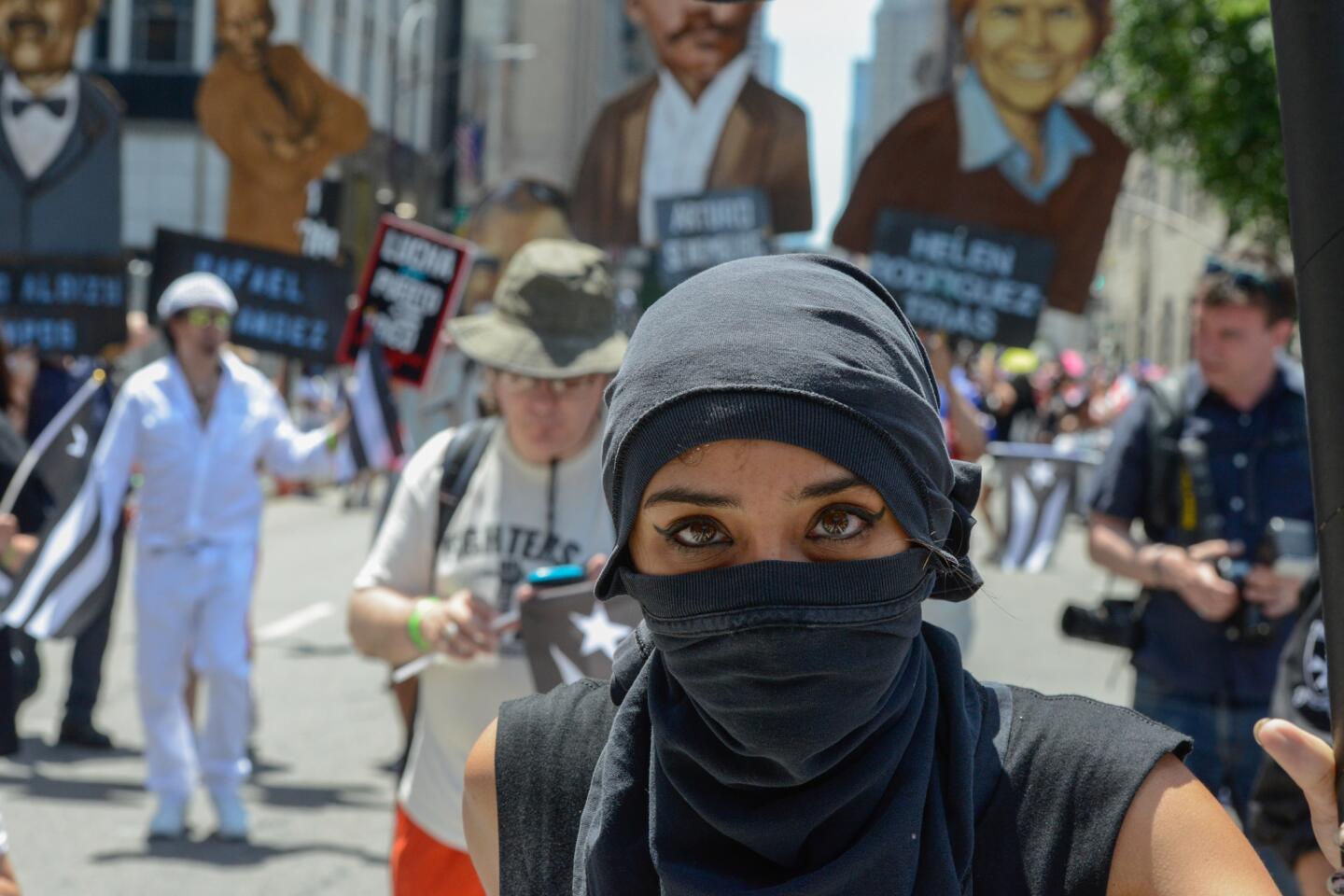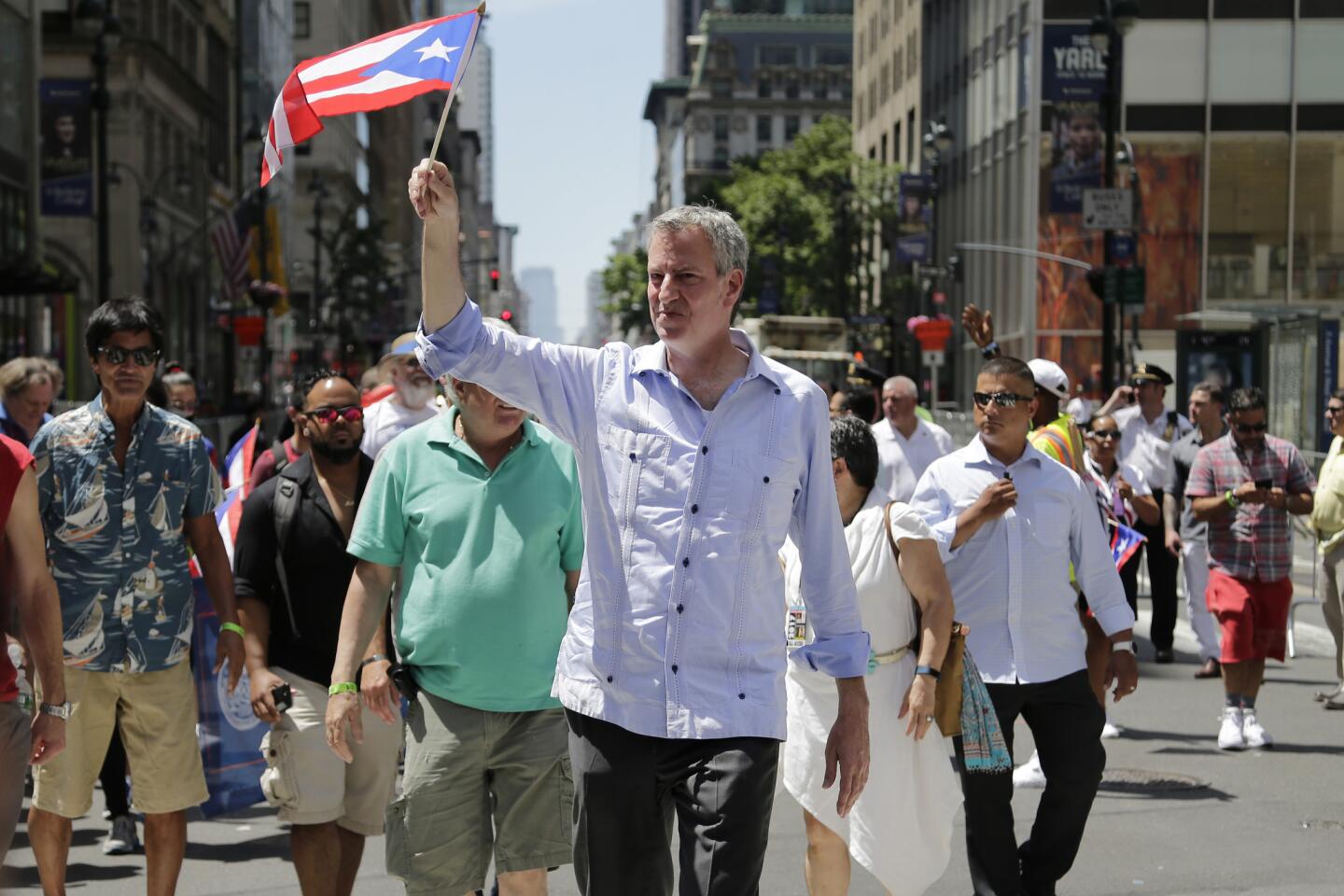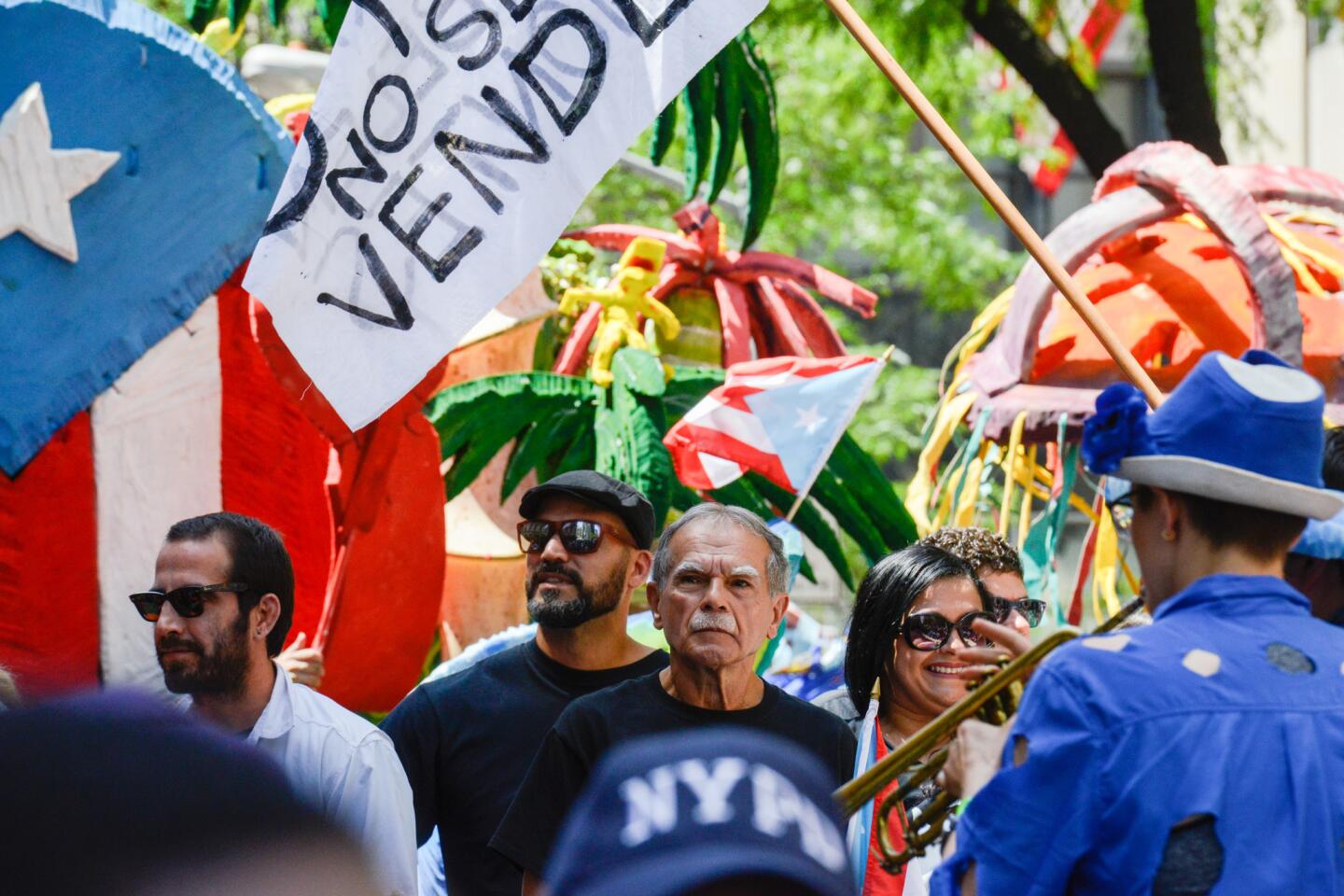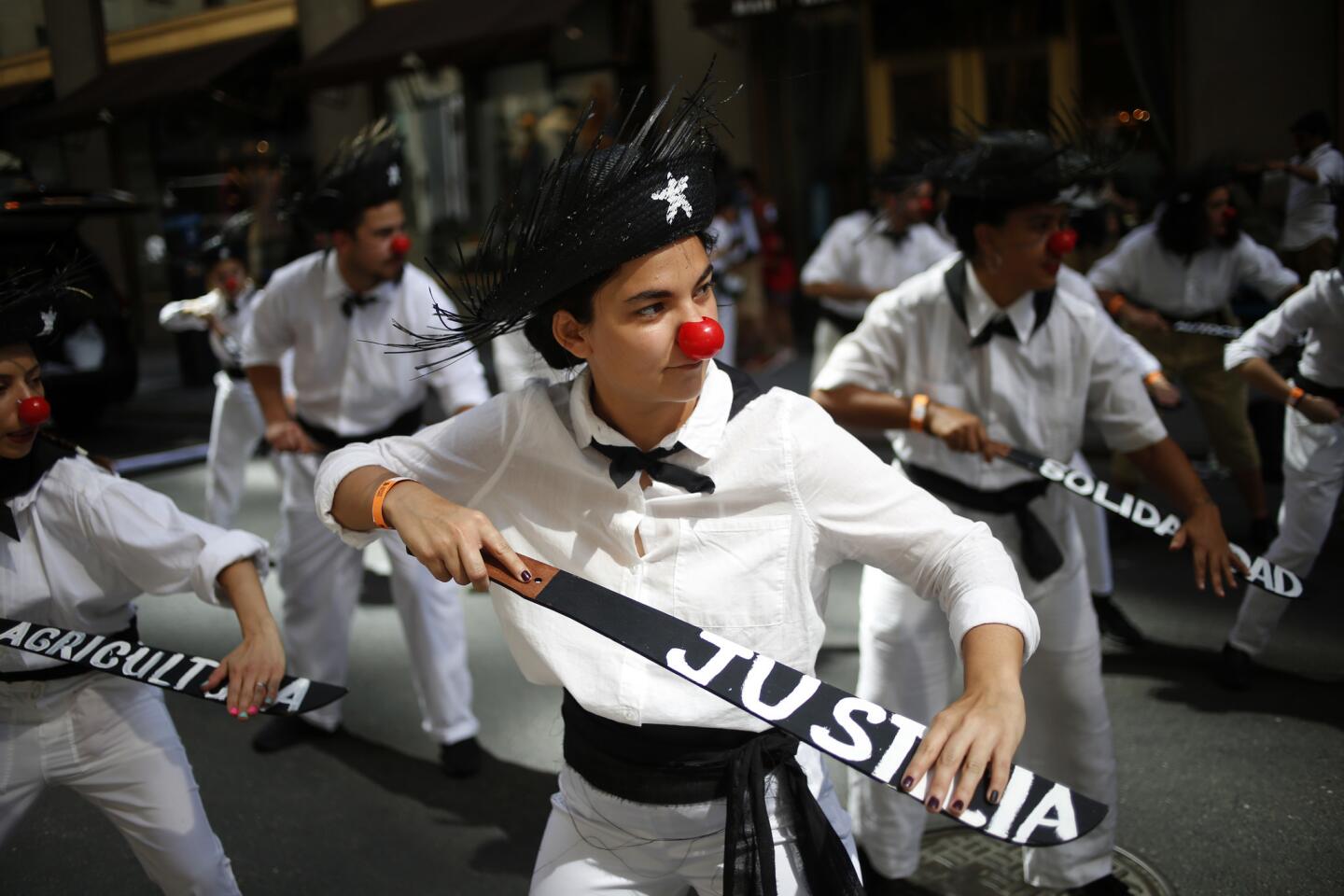Politics overshadow the floats and batons at New York’s Puerto Rican Day Parade
Reporting from NEW YORK — Politics took the front seat at this year’s Puerto Rican Day Parade in New York on Sunday, as the traditional batons, floats and marching bands were overshadowed by the inclusion of a militant pro-independence figure and a vote in favor of statehood taking place on the island.
Controversy swirled around Oscar Lopez Rivera, a thin, severe-looking 74-year-old who rode on one of the first floats up Fifth Avenue waving his fist in solidarity with supporters, ignoring those who booed.
A political prisoner in the tradition of Nelson Mandela to his followers and a terrorist to critics, Lopez Rivera is fresh out of federal prison, where he served 35 years for his leadership role in the Armed Forces of National Liberation, or FALN, blamed for more than 100 bombings in the 1970s and early 1980s.
Many traditional sponsors of New York’s largest ethnic parade withdrew their support this year because of Lopez Rivera’s prominent role, and the parade was boycotted by New York Gov. Andrew Cuomo, among other politicians.
Emotions ran high among parade attendees and participants, who signaled their political slant with their clothing and the colors displayed on their floats. Most wore red, white and blue, the colors of the Puerto Rican flag, while Lopez Rivera and many of his supporters wore black.
John Bravo, 36, who marched with a pro-independence delegation in black, holding up placards denouncing colonialism, blamed Puerto Rico’s crippling debt crisis and poverty on its ambiguous status as a commonwealth, where people have U.S. citizenship but cannot vote for Congress or the president.
“Puerto Rico is poorer than Mississippi by half, and Americans don’t care,’’ Bravo said. “They look at Puerto Rico as just a place to go to look at sexy bikinis and drink $2 beers. This is what colonialism is all about.’’
Directly behind him was a marching band from Lorain, Ohio, whose members voiced similar concerns about Puerto Rico’s financial condition but disagreed about the solution.
“I would like to see Puerto Rico become a state,’’ said Sonia Vargas, 51, a Brooklyn-born bookkeeper who now lives in Ohio. “I don’t see Puerto Rico being in any way ready to be independent. She is dependent on the U.S. military. She uses U.S. currency.’’
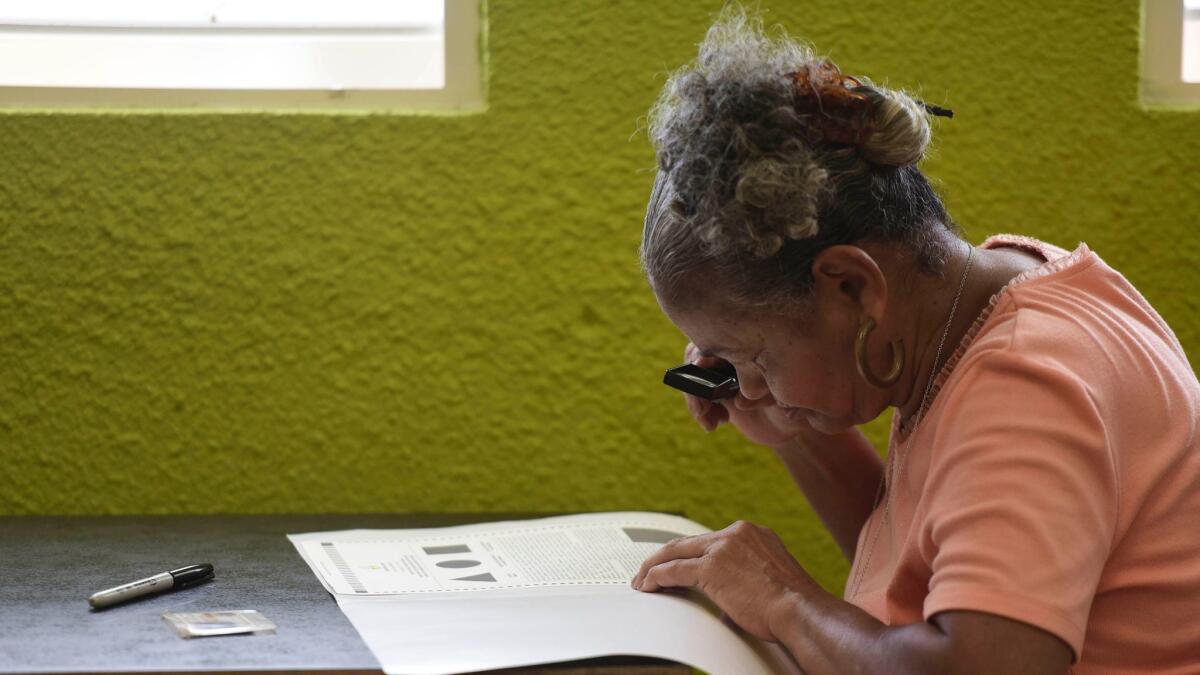
The parade coincided with a nonbinding vote on the island, the fifth in the last 50 years, in which Puerto Ricans were asked whether they favor statehood, maintaining the status quo, independence or free association, in which the U.S. would continue to provide military protection.
Of those who voted, some 97% chose statehood, according to early results released Sunday night.
“From today going forward, the federal government will no longer be able to ignore the voice of the majority of the American citizens in Puerto Rico,” Puerto Rico Gov. Ricardo Rossello said. “It would be highly contradictory for Washington to demand democracy in other parts of the world and not respond to the legitimate right to self-determination that was exercised today in the American territory of Puerto Rico.”
Many questioned the validity of the vote, however, because of a boycott by anti-statehood opposition parties that resulted in only about 500,000 voters, fewer than a quarter of those eligible, showing up. Also, Puerto Ricans living on the U.S. mainland, who outnumber those on the island, tend to be more in favor of independence but could not cast ballots in the referendum.
Statehood for the largely Democratic, Spanish-speaking island would have to be approved by a Republican Congress that has shown little inclination to do so.
“I don’t think there is any incentive for this Congress to accept Puerto Rico as the 51st state,” said Hector Feliciano, a 27-year-old retail executive. “Puerto Ricans think of themselves as Americans, but most Americans don’t recognize them as citizens. They don’t realize that people fight in American wars and pay social security.’’
That’s why Feliciano advocates for independence for Puerto Rico. “I think it is the only realistic option,” he said.
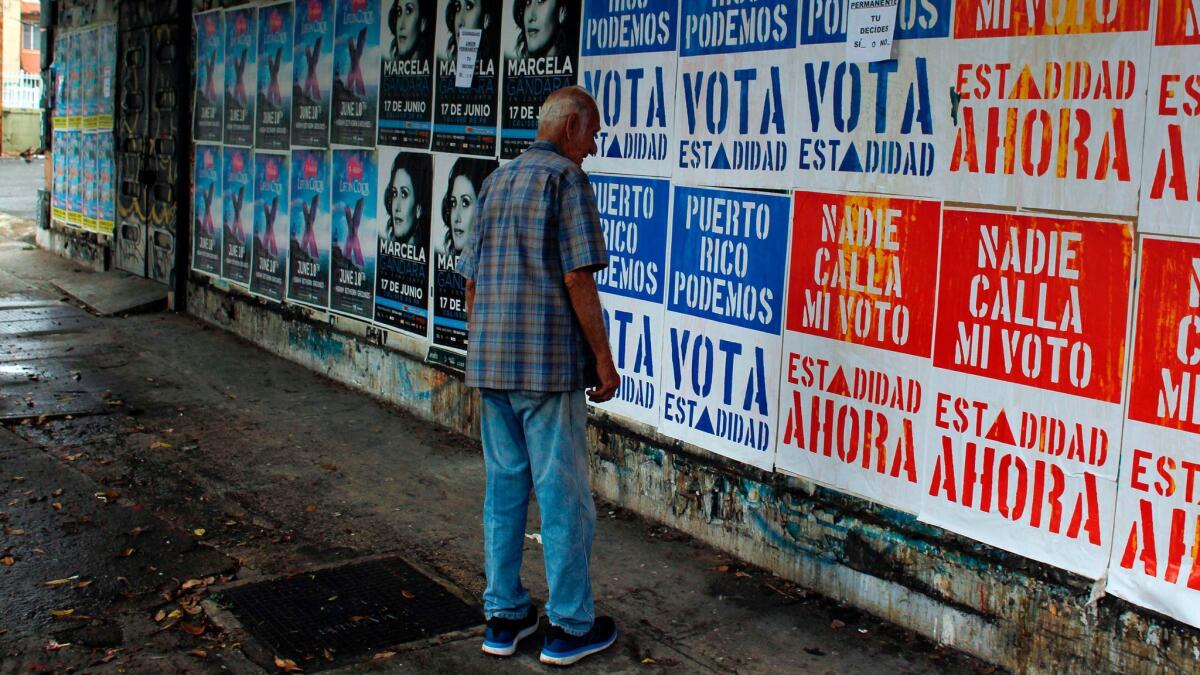
About 5.4 million Puerto Ricans live on the U.S. mainland, a number that is growing because of an exodus of people who cannot find jobs or continue school on the depressed island. More than 1 million are in New York.
Puerto Rico has more than $120 billion in debt, a crushing load that has given rise to a new wave of activism.
“It’s impossible for Puerto Rico to pay that debt, except if every last dollar that the Puerto Rican worker has in his pocket is taken out of his pocket,’’ said Lopez Rivera in an interview published last week on the Democracy Now website.
Lopez Rivera was convicted in 1981 on charges of seditious conspiracy, use of force to commit robbery, interstate transportation of firearms, and conspiracy to transport explosives with intent to destroy government property. President Obama commuted his 55-year sentence, a decision that was opposed by relatives of the victims of a 1975 lunchtime bombing at New York’s historic Fraunces Tavern, where four people were killed and 60 injured.
But Lopez Rivera also has powerful champions in intellectual and political circles. When the prison sentence was commuted in January, “Hamilton” creator Lin-Manuel Miranda tweeted that he was “sobbing with gratitude.”
New York City Council Speaker Melissa Mark-Viverito pushed for Lopez Rivera to be honored with the parade’s National Freedom Award. Although Lopez River said he would decline the award, he still occupied a place of honor at the front of the parade.
“I don’t think [the organizers] anticipated the kind of blowback that they would get in the environment post-9/11 by inviting this kind of person,’’ said Angelo Falcon, president of the National Institute for Latino Policy in New York. “The parade was supposed to be honoring a lot of other people, musicians, artists, performers, but you wouldn’t know because all the focus was on Lopez Rivera.’’
UPDATES:
5:57 p.m.: This article was updated with early results from the referendum.
This article was originally published at 4:45 p.m.
More to Read
Sign up for Essential California
The most important California stories and recommendations in your inbox every morning.
You may occasionally receive promotional content from the Los Angeles Times.
